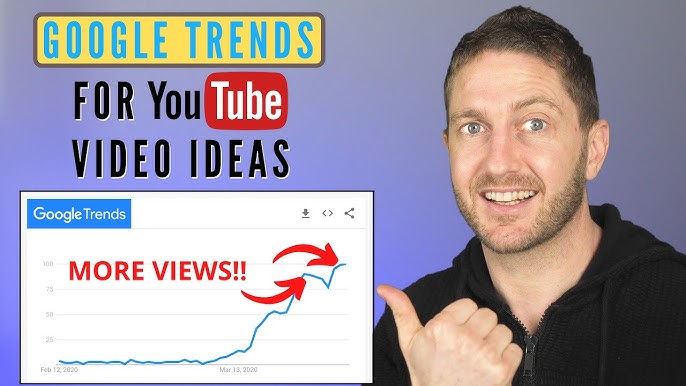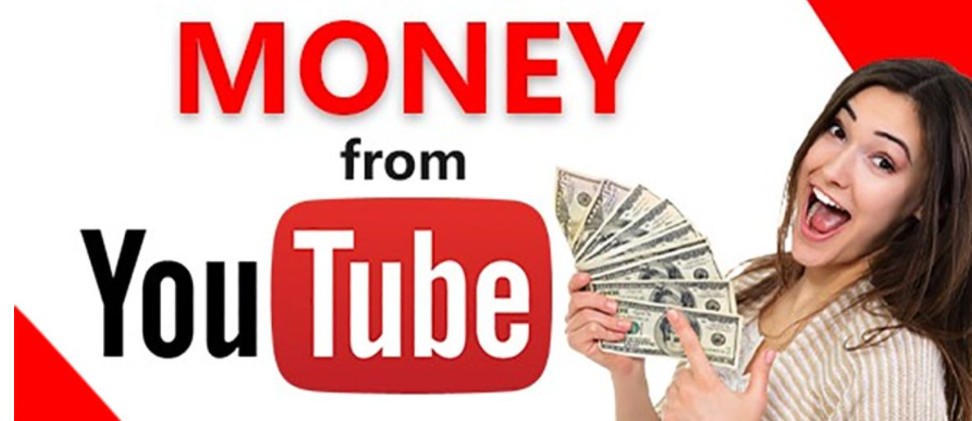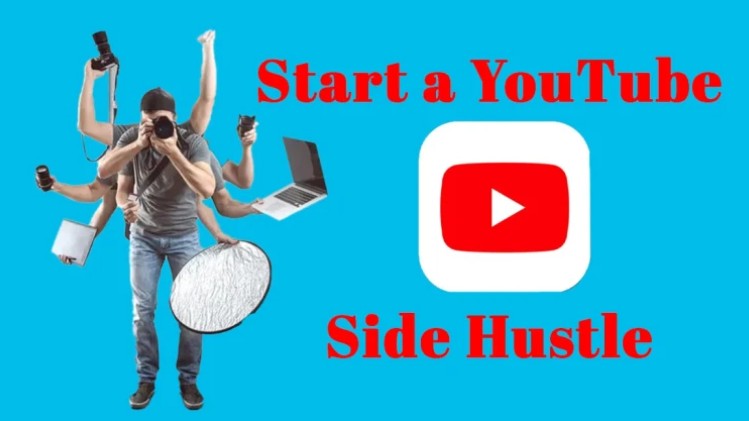
To launch a YouTube side hustle using Google Trends–backed ideas. Learn to create faceless or affiliate videos, optimize for search, and monetize with AdSense, sponsorships, and affiliate marketing.
Starting a YouTube channel on the side can be a game-changer—especially when driven by proven search trends. By tapping into tools like Google Trends, creators can craft content that resonates, gain consistent views, and build a revenue-generating system. The key? A strategic blend of search trend research, faceless or affiliate content formulas, and monetization via AdSense, sponsorships, and affiliate programs. Here’s your step-by-step guide.
1. Why Use Google Trends for Video Ideas? 🎯
Identify rising search trends
Google Trends shows what topics are spiking in interest over time. Jumping in when a trend is at its peak helps your video ride the wave of audience curiosity.
Seasonal and evergreen search signals
Some searches, like “best winter jackets,” follow predictable patterns every year. Others, like “AI image generators,” may spike overnight. Strategies vary based on whether a topic is consistent (evergreen) or momentary.
Competitor and region insights
Google Trends lets you compare search volumes across related topics and regions. That data unveils untapped opportunity areas where few creators are positioned.

2. How to Generate Video Ideas with Google Trends
Step 1: Choose your niche
Pick a niche you care about—fitness, money-making, tech gadgets, mental health—something you’re comfortable researching and talking about.
Step 2: Explore keyword clusters
Type core terms into Trends, then study “Related queries.” Pay attention to rising or breakout phrases, like “AI art prompts,” “silent productivity app,” or “budget travel tips.”
Step 3: Evaluate search volume vs competition
High interest with few videos? That’s a sweet spot. Use tools like Keywords Everywhere or TubeBuddy to verify high monthly searches versus low video count.
Step 4: Plan series and formats
Once you’ve landed on key queries, build content series: “Top 5 AI Tools of Month X,” “Silent Study Playlist 2025,” “Top 10 Budget Cameras Under $300.” Series content encourages binge watching.
3. Faceless Content: What Is It & Why It Works
Face-free, voice-over, or text-based videos
Some creators never appear on screen. Instead, they use slides, animations, stock footage, or screen recordings with voice-over or text narration. These faceless videos allow consistency without performance anxiety and faster production.
Scalability and efficiency
You can batch-produce content using templates (e.g. “5 Best Travel Gadgets”), outsourcing voiceovers, thumbnails, or video editing—great for side hustles.
Aligning format with trending searches
When you identify a trending topic (e.g. “best AI writing tools”), a faceless format works well: animated list video, simple slides with narration, or recorded demos.
4. Affiliate Content: Building Revenue-Ready Videos
Choosing affiliate-friendly trends
Pick videos where you can recommend relevant products or services—tech, software, apps, books, gear, courses, etc.
Integrating recommendations naturally
Create “Top 5” or “3 Best” affiliate videos. Offer honest pros/cons and include affiliate links (YouTube Live or pinned comment, description). Label it clearly per FTC guidelines: “This video includes affiliate links.”
Tracking and optimizing affiliate campaigns
Use URL shorteners (bit.ly) to track clicks and conversions. Pause partnerships that don’t convert and reinvest in those that perform well.
5. Monetizing via AdSense
How AdSense Works on YouTube
AdSense places ads before, during, or after your video. You’re paid per thousand views (RPM), which varies based on audience, geography, and niche.
Content + SEO = higher CPM
Trends-driven content, especially in finance, tech, or business, often yields higher CPM. Use keyword-optimized titles, descriptions, and tags to maximize SEO.
Watch time and session signals
YouTube prioritizes videos with better watch-time. Structure your content to hook viewers early, use timestamps, and avoid self-promotional traps that kill momentum.
6. Sponsorships: Beyond AdSense & Affiliate
When you’re ready for sponsors
Once you hit ~10k–50k monthly views, brands in your niche may offer on-screen promotion deals.
Structuring sponsor deals
You might offer 15–30‑second sponsored spots mid‑video, or launch a “brought to you by” intro. Set rates based on CPM, video length, and audience.
Balancing sponsorships with audience trust
Select sponsors whose products/services match your niche and brand. Use clear disclosures: “This video is sponsored by…” and keep endorsements authentic.
7. SEO Optimization for YouTube Videos
Keyword-driven titles
Use your primary phrase from Google Trends + mid-tier keywords. E.g.:
“Best AI Writing Tools 2025 | Top 5 AI Copy Generators (Expert Picks)”
Description strategy
Within the first 80 characters, include your main phrase to help with search ranking. Provide an overview, time-stamps, affiliate links, sponsor notes, hashtags, and a subscribe call-to-action.
Example structure:
lessCopyEditBest AI Writing Tools 2025 | Top 5 AI Copy Generators
🔍 In this video, we explore the best AI writing tools available today...
00:00 Intro
00:45 Tool 1: XYZ
...
♦ Affiliate links & Sponsored message ♦
✅ Subscribe & hit 🔔!
#AI #WritingTools #Productivity
Tags & categories
Include exact phrases, synonyms, and relevant broad tags. Eg:best ai writing tools, ai copywriting, AI tools 2025, AI for writers, faceless content niche
Thumbnails
Use bold, emotionally engaging visuals, clear text overlay (60–80 pt), and consistent branding. Faces are optional—even in faceless channels a design consistency wins on click-through.

8. Scheduling & Analytics: Staying Trendy
Balance trending vs evergreen content
Produce hot-topic videos weekly, and evergreen content monthly. Use Google Trends to revisit peak times (e.g., budget gift guides in December vs hiking gear in summer).
Performance tracking
Use YouTube Studio analytics to monitor impressions, click-through rate, watch time, and retention. Identify which videos yield the highest RPM and viewer engagement.
Pivot and refine
If “5 Best AI Writing Tools” kills it, make more comparison videos. If seasonal content does well at certain times, schedule uploads accordingly.
9. Tools & Workflow for Hustle Efficiency
| Task | Tool Recommendation |
|---|---|
| Trend Research | Google Trends, TubeBuddy, Keywords Everywhere |
| Script Writing | ChatGPT, Google Docs |
| Voiceover Recording | Audacity, Descript, ElevenLabs |
| Video Editing | DaVinci Resolve, CapCut, InVideo |
| Thumbnail Design | Canva, Adobe Express |
| Analytics | YouTube Studio, VidIQ |
10. Checklist for Launching Your Trend-Driven Side Hustle
- Select a niche and brainstorm core topics
- Use Google Trends to validate queries + seasonality
- Choose format: faceless, affiliate, or hybrid
- Write SEO-optimized title + description + tags
- Create thumbnail and record content
- Upload and track analytics
- Apply AdSense once eligible
- Add affiliate links and pitch sponsors
- Refine based on data
- Scale by batching and systemizing creation
🚀 Conclusion
“Starting a YouTube Side Hustle Based on Search Trends” is more than a catchy line—it’s a strategic method for creators who want reliable, data-driven growth. By combining Google Trends insights with faceless content, affiliate revenue, AdSense earnings, and timely sponsorships, you can build a sustainable side hustle that pays off over time.
Start small, stay consistent, and let trend data guide your creativity. In time, your YouTube side hustle could become a full-fledged income stream.
✅ Final Tips
- Be timely: Publish when your topic peaks on Trends.
- Be honest: Whether AdSense, affiliates, or sponsors, keep integrity.
- Be consistent: Upload on a set schedule (e.g., every Tuesday).
- Be data-driven: Use analytics to refine and grow.
Get started today: Grab your niche, open Google Trends, and plan your first 5 videos. With clear SEO, a lean workflow, and multiple monetization streams, your YouTube side hustle could be well on its way.